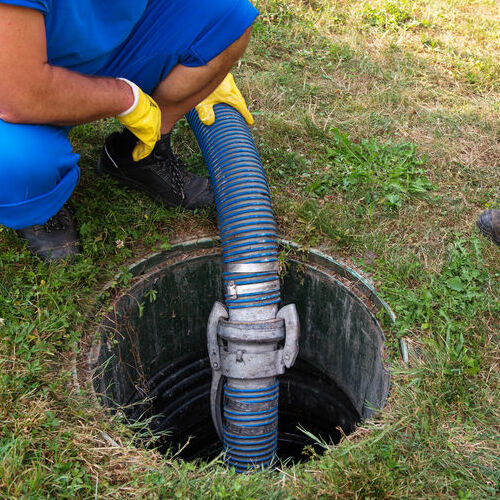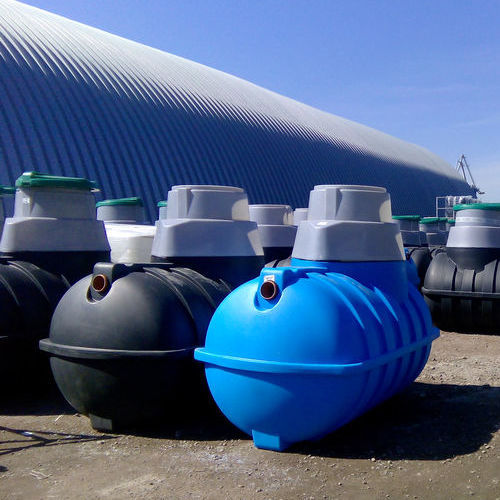
How Often Do You Need to Empty a Septic Tank?
In many neighborhoods, both rural and urban, septic tanks are a part of life. Septic tanks are usually constructed out of concrete or plastic. They collect sewage and wastewater from the house. With regard to how often your septic tank needs to be emptied, the timing varies. As a general rule, homeowners should strongly adhere to the understanding that their septic tank should be emptied every three to five years. However, if many people live in your household, you will need to empty your septic tank sooner rather than later. In order to understand more about the condition of your septic tank, consult your local, trusted septic tank expert at a reputable plumbing company. In addition to the routine maintenance that septic tanks need, air conditioners require an inspection from time to time. Please consult your local HVAC technician for air conditioner maintenance at least once a year.
What are the Symptoms of a Full Septic Tank?
If your septic tank is full, you will be able to diagnose a range of problems in a fairly straightforward manner. Please browse through the following list of symptoms of a full septic tank. Also, please make sure to contact a professional to dispose of your waste properly if you recognize more than one symptom.
- Pooling water. If there is more than one area of your lawn that has pooling water, despite a lack of rainfall, it could mean that your septic tank is overflowing.
- Slow drains. Slow-moving drains in your home could mean that you have a clog. They could also mean that you are experiencing sewage back-up from your septic tank. For a more specific analysis, make sure to contact a professional.
- Odors. If you smell sewage as you walk around your lawn, but are unable to locate a separate source for the smell, you could have a full septic tank.
How Much Does it Cost to Install a 1000 Gallon Septic Tank?
According to a leading website, the average cost for a septic tank installation is approximately $5,866. The range for such an installation vacillates between $3,104 and $9,255. Specifically pertaining to the 1,000-gallon tank, which is used for a three-bedroom home, the cost can range from $2,100 to $5,000. That estimate usually includes the price of the tank itself.
How Do Septic Tanks Work?
Septic tanks work by allowing waste to separate into three layers. These three layers are known to be solid, effluent and scum. Watery waste, known as effluent, fills most of the tank. Anaerobic bacteria break down organic material contained in the effluent. Sludge falls to the bottom of the tank. Sludge is made up of inorganic solids and the byproducts of bacterial digestion. Scum floats to the top. Scum is made up of fats, greases, and oils. The drain field provides a large area where bacteria can thrive and treated water can then seep into the ground.
Can I Install My Own Septic System?
Rules for septic tank installation vary from state to state. In Florida, all the oversight for installation, repair, operation, or alterations of onsite sewage treatment and disposal systems are handled by the Florida Department of Health. For large properties, when then disposal of quantities exceeds 5000 gallons per day, the oversight is handed to the Florida Department of Environment Protection, also known as DEP. Anyone who wants to become a septic tank contractor must be registered and approved by the state of Florida.
Will Septic Tanks Freeze?
If your septic tank has frozen, you will need septic tank services. This is because freezing temperatures can cause various components of your septic system to stiffen with frost. The most vulnerable portions of your system are the pipes that lead from the home to the septic tank. It is also important to note that septic systems that are infrequently used will also be more susceptible to freezing.
What are Septic Tank Lateral Lines?
Septic tank lateral lines are also known by another name: percolation pipes. These are perforated pipes that extend from the outlet of the septic tank, below ground, into the soil. Lateral lines create a network of pipes that allow the effluent from the tank to run through.
What are Septic Tank Worms?
If you have ever heard of worm farm waste systems, these systems use septic tank worms. Worms are very good for the environment, enjoying a privileged status in the garden. They break down organic rubbish, releasing nutrients back into the soil. Worm farm septic tank systems effectively process sewage. This sewage includes all household wastewater and organic waste, ranging from food and vegetation to weeds. When combined with natural organisms, worms open up and improve the quality of your soil.

Can Septic Tanks Cause Sinkholes?
When septic tanks are improperly abandoned, they have been known to cause dangerous sinkholes around them. These sinkholes can cause injury and even death. That is why it is important for all septic tanks to receive proper maintenance and to be taken care of, even when a property is no longer in operation.
If you think repairs are required for your septic tank in Fort Pierce and Port St. Lucie, Fl, call KRK Enterprises, Inc. at 800-330-7686 to speak with our staff about making an appointment today!

